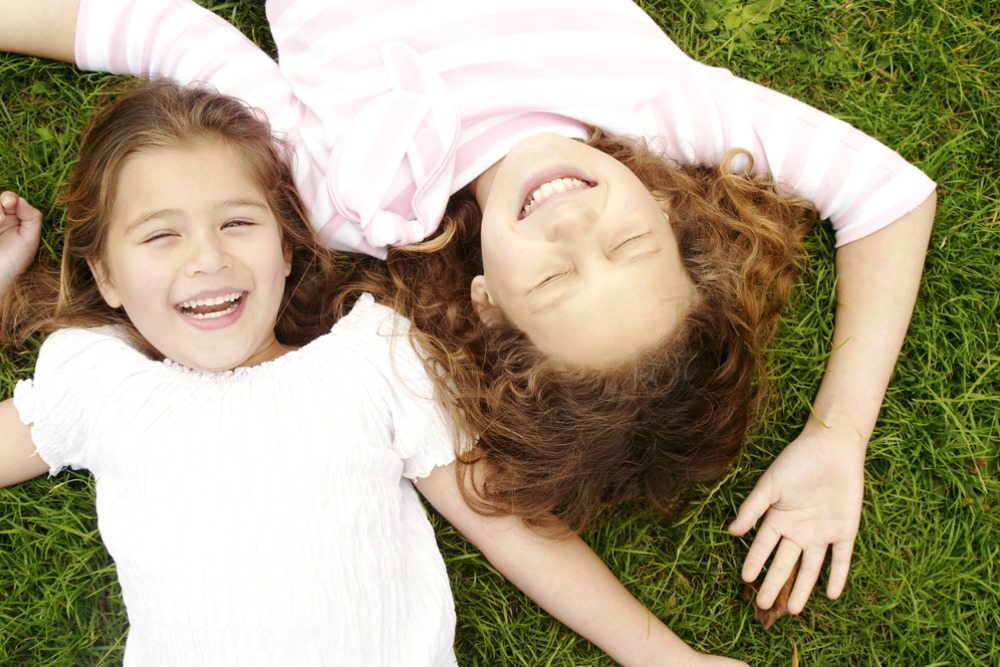Sometimes you can actually hear the whoosh. It sounds like a heavy sigh but is actually the sound of another load of confidence taking a dive, usually pushed by a mirror, a size tag or a set of scales. They’re the dirty little liars in our midst.
If negative body image was caused by a pathogen, we’d be lining up the kids in our lives for immunity.
Having a positive body image doesn’t mean believing your body to be the picture of perfection. What it means is that the body is accepted and embraced as it is – bumps, bends, curves and all.
First (not that you probably need it) here are the stats:
According to Eating Disorders Victoria:
- Eating disorders are on the rise in boys and men.
- 1 in 8 of women have had an eating disorder at some time in their lives.
- In Australia, 28% of males and 35% of women aged 11-24 are dissatisfied with their appearance.
- 41% of children are worried about how they look. 44% of girls and 27% of boys worry about being overweight. 16% worry about being too skinny.
- A 2007 Sydney University study of nearly 9000 adolescents found that one-fifth of teenage girls starved themselves or vomited to control their weight. 8% smoked to control weight. Boys are doing it too.
- In a study commissioned by Dove involving 3,300 girls and women aged between 15 and 64 from 10 countries, it was found that 67% of women withdraw from life-engaging activities because they feel bad about they way they look.
Now for the good news. There’s plenty we can do to protect our kids – boys and girls – against the assault of a negative body image:
-
Model self-compassion.
A recent study found that self-compassion protects girls and young women against unhealthy weight-control practices and eating disorders. Women who were able to be gentle to themselves in the face of disappointments and upsets had a more positive body image and better eating habits. Being kind to yourself in the face of disappointment will make it more likely that your kids will follow.
-
Make positive comments about others.
Whenever you can, make generous comments to your kiddos about people of all shapes. Confident people (not arrogant people) radiate a beauty that is enviable and unmissable. Let your children know that beauty doesn’t only come in a size 6, by pointing out other forms of beauty when you see it. This will counter the constant bombardment by the media that it’s otherwise.
-
No trash talk.
Avoid talking about weight or the parts of your body you don’t like. If you need to do it because the absence of self-criticism is making you shudder, just try to avoid doing it in front of your kids. They’ll pick it up and they’ll run with it because out of everything they want to be, the thing they want to be the most is just like you. There is nobody more influential. They’ll follow your footsteps before they follow your advice.
-
Exposure to healthy cultures.
Encourage your kids to participate in sports or activities that value performance over looks.
-
Counter the comparisons.
Harvard researchers found that when cable made it to Fiji in 1995 (Friends, Ally McBeal, Melrose Place and the like), rates of anorexia nervosa and bulimia skyrocketed. Prior to this, fuller figures were appreciated and eating disorders were almost unheard of on the island. Fast forward a few years, and girls who watched these shows at least three times a week were 50% more like to have a distorted body image. Many aspects of the media are relentless in their promotion of perfection and supermodel-esque beauty above all else. Nobody looks like the people in the photos. Not even the people in the photos. Let your kids know. They’re never too young to hear it.
The push against society’s blind infatuation with the perfect body shape isn’t easy. Occasionally I’ve found myself buying into the propaganda. It generally coincides with the lumbering escape of my body from a not so obliging zip but fortunately, these days, the buy-ins are short-lived.
None of us were born hating our bodies. Recently, 50 children and adults were asked what they would change about their bodies. The adults were asked first and their answers included ‘my Dumbo ears’, ‘my crooked feet’, ‘my skin’, ‘my eyes’. Then the kids had their turn and their answers were breathtaking – ‘a mermaid’s tail’, ‘wings’, ‘a shark’s mouth – to eat a lot of stuff’, ‘I like my body actually’ and ‘I don’t think there’s anything to change’. You can see the video by the Jubilee Project here. It’s beautiful, moving, confronting and deserves to be seen.
Children are clever and will pick up on the inconsistencies between what we say in the public moments and what we do in the private ones.
The way we treat ourselves is critical in protecting our kids against the insult of body image propaganda.
Stand between them and the propaganda and they’ll move mountains, or at the very least wave a confident, commanding ‘shush’ to a flimsy photo-shopped world that would have them believe that they can’t.
[irp posts=”1338″ name=”19 Practical, Powerful Ways to Build Social-Emotional Intelligence in Kids & Teens:”]



How would you so this if you’ve already altered your body to fit the popular image?
Talk to your kids openly and honestly about why you did it, and what the experience was like, and what you’ve learned.
Thank you for sharing, this is so beautifully touching! I would like to think that I encourage my children to see beauty in all people & will definitely continue to do so.
I loved the video, it made my day. X
Thank you! The video was incredible wasn’t it. Sounds like your kids are lucky to have you x